By Amit Kumar, TwoCircles.net
Hailakandi: The first thing that strikes you about Hailakandi, Assam, is that given the condition of the roads in its neighbouring district Karimganj, the roads here are relatively better: of course, when it comes to Assam’s roads, the word relatively must be used carefully, and only in a certain extent. But so far, so good for Hailankadi, Assam’s southernmost district that shares an 80-km border with Mizoram and has three assembly constituencies—Hailakandi, Katlicherra and Algapur.
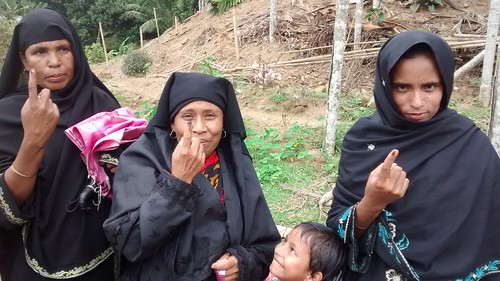
The district voted in the first phase of elections on April 4, and while the political activity was at an all-time high, for the administration, organizing elections in this remote district proved nothing less than a mammoth task, made worse by a problem familiar to all of Assam: roads.
Twenty four hours before polling began; about 700 polling officials started their journey in over 700 vehicles into the interiors of the district, armed with polling machines and other essentials. The local administration, under the eyes of the Deputy Commissioner of Police Moloy Bora, had been preparing for over a month for the same, and the task had been anything but easy or smooth.
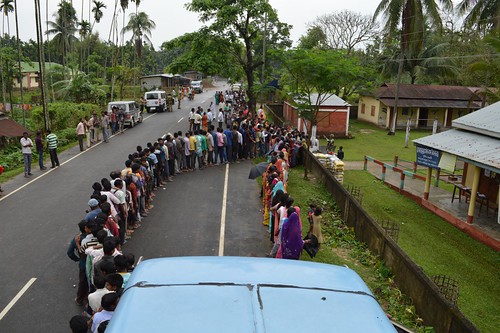
The district had asked for 29 companies of armed forces to ensure a smooth election, given that it had marked over 300 polling stations as highly sensitive. However, the Assam government had provided with only 15, after initially promising 23. This meant that the local administration had to secure all stations in Hailakandi with just half the forces.
The reason for asking for so many forces became clear when Bora explained to Twocircles.net that this district, especially along the Mizoram border, was vulnerable to insurgent threats, especially from the United Democratic Liberation Front of Barak Valley (UDLFB). One polling station—Gudgudi—an island on the border was particularly vulnerable.
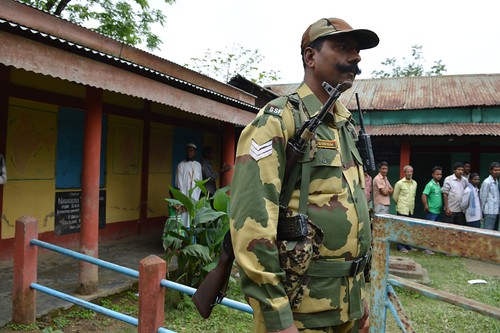
The island, which had about 1,000 voters, had to be secured with the help of Mizoram authorities. From the border, polling officials and five men from the Border Security Force had to go in boats to the station and would be provided additional security by the Mizoram police. The administration had also received about 100 vehicles, including 62 from Tripura, to ensure that election requirements are met.
But for zonal officer Anil Dutta, a forest officer who was in charge of Ward number 58, Katlicherra, the issues were not limited to just Gudgudi. Thankfully, the Gudgudi team had reached the polling station safely just before the rains arrived. Dutta’s biggest concern was to ensure that all polling officials reached their place by the night of April 3. But while logistical issues at hand could be tackled, Dutta, a forest range officer in charge of the Gharmura Range, had little to fight against nature. On April 3, Hailakandi saw rains, and lots of it, which meant that for all the officials going to the interior regions of Katlicherra, it was nigh impossible to do so in vehicles.
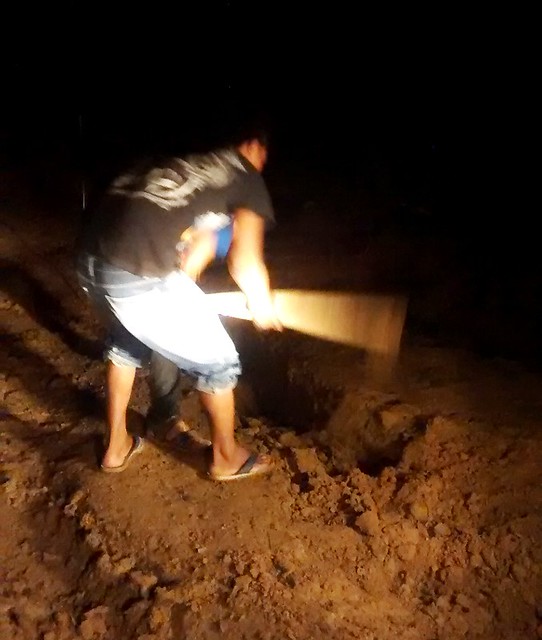
One polling station, in Jhalnacherra area under the Ramanthpur Police Station, proved more difficult than all others. Given that the only ‘road’ to Jhalnacherra was a mud track through an uneven terrain, the heavy rain meant a mini-bus and a jeep were unable to wade through. Around 12 am, with less than five hours to go before all of the polling procedures were to be in place, Dutta got a call from one of the officials that the team for Jhalnacherra polling stations had got stuck and due to poor signal, could not be contacted. Given that this was listed as an insurgency prone area, Dutta had no option but to go out in the heavy rain to search for the team and ensure their safety.
However, he neither had any arms nor any personnel for his disposal so he took the staff from his office, along with his brother, to the spot. Five minutes into the drive, this correspondent, who had accompanied Dutta, saw the pitiable condition of the roads. The mud tracks had been all but washed off, and had developed huge cracks in other places.
The continuing rain made driving nigh impossible, and it took them nearly one hour to wade through the 10 km distance thanks to a four-wheel drive vehicle. On reaching the polling station, it was found that the 17 members of the polling team including five armed officers from the BSF and the state armed police, had abandoned their vehicles and walked 11 kms through the jungles and rains to arrive at the station.
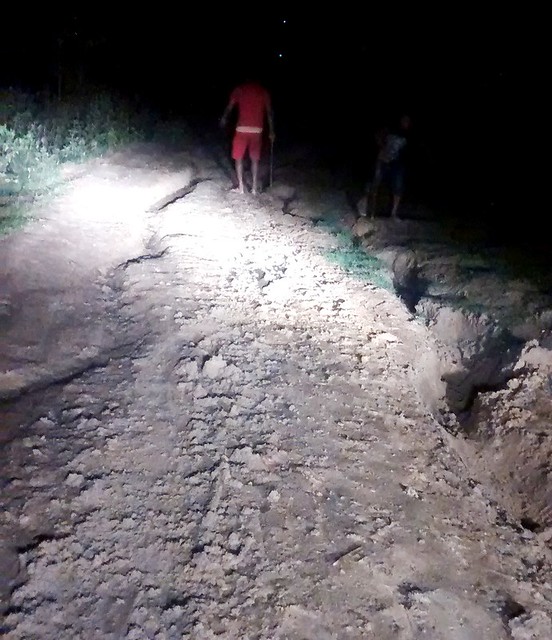
The circle officer’s phone had stopped working; they had little to eat and since all their clothes were wet, some of them had borrowed lungis from a nearby village to sleep at the polling station. One BSF officer, who despite all still stood guarding the station, spoke to Twocircles.net. “I had to carry about 40 kgs of luggage and heard three rounds fired at a distance on my way.” The village in which the polling station fell had no electricity, and the team had no option but to set up bed on the floor and somehow catch some sleep before getting up for work.
For Dutta however, the problems did not end there: even though the team had reached safely, the vehicles remained stranded and had to be rescued so that the polling officials could head back to Hailakandi in the evening. On the day of polling, Dutta, who went around his ward to ensure that the smaller issues are dealt with, had to also somehow find a way to retrieve the vehicles. A tractor was called from a nearby tea estate, but instead of retrieving the vehicles, it also fell in a ditch.
Numerous attempts to start the vehicles yielded nothing either. It was only at 3 pm, with less than two hours before polling ended, that he was able to find an earth-mover vehicle—JCB—which finally managed to somehow save the Jeep. The mini-bus was retrieved only to get stuck again, such was the condition of the roads. It was not until the next day that the vehicle could be saved.
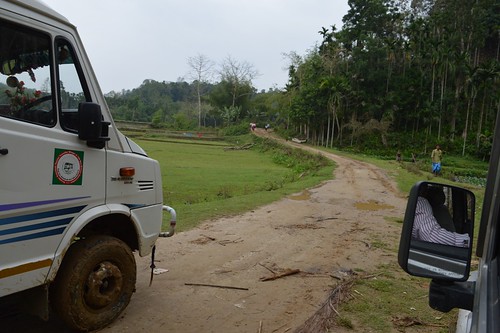
However, through all this, the best news for the local administration was that in a district which had hitherto seen about 100 incidents of re-polling in various levels of election since 2001, all stations had managed to conduct elections peacefully without any glitch. And despite the incessant rains, Katlicherra had recorded over 70% of casting across all its stations. As one of the polling officers who had been stationed in Gudgudi, said, “It was amazing to see the excitement, especially among the women of Gudgudi, at the polling station. They had been lining up since 5.30 am to cast their votes. However, when I see how difficult their lives are with no clean water, no electricity, a school where the entire roof leaked and no mobile signal, I wonder what they are voting for.”
